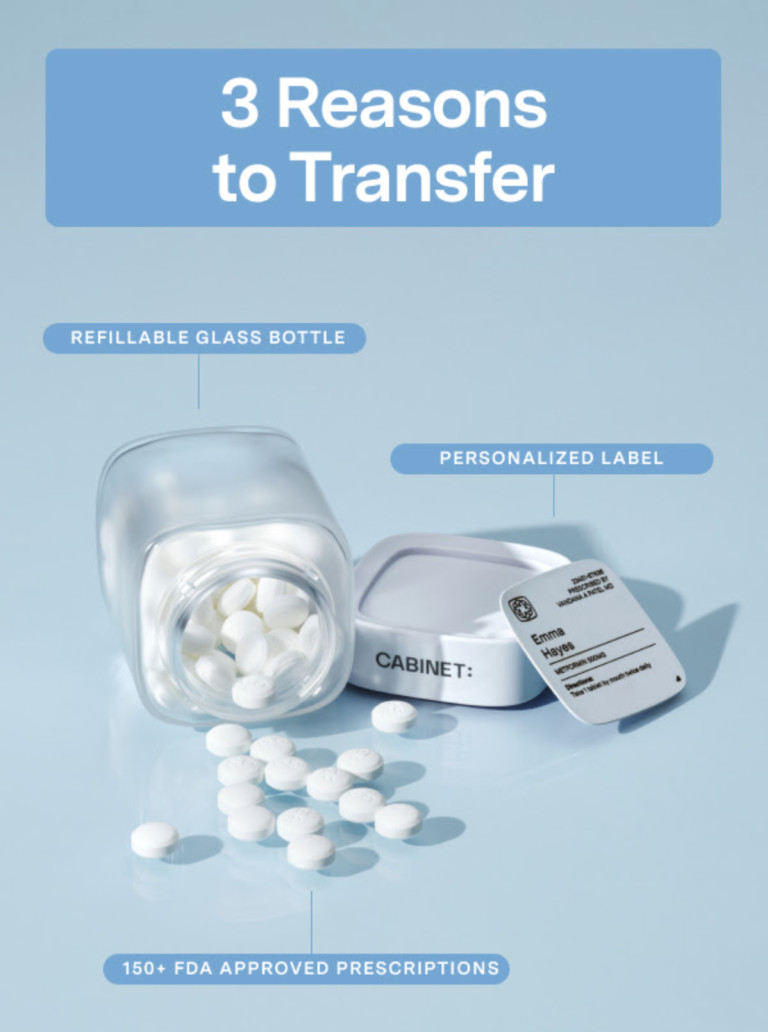125 mcg of levothyroxine is considered a moderate dose for treating hypothyroidism. However, what is considered a "high" dose can vary depending on the individual's specific condition and response to the medication. It's important to work closely with your healthcare provider to determine the appropriate dosage for your unique needs. Factors such as age, weight, and other health conditions can all play a role in determining the right dosage of levothyroxine for you. Always consult with your doctor before making any changes to your medication regimen.
Levothyroxine is a medication that is commonly used to treat thyroid disorders, such as hypothyroidism. It works by replacing or supplementing the hormone produced by the thyroid gland, which helps regulate various bodily functions. Determining the appropriate dosage can be a complex process. In this article, we will explore the role of levothyroxine in the body, factors to consider when determining dosage, the potential side effects of high dosages, case studies of experiences with a 125 mcg dosage, and when and how to adjust dosage if necessary.
Understanding Levothyroxine: What is it and How Does it Work?
Levothyroxine is a synthetic form of the hormone thyroxine, also known as T4, which is produced by the thyroid gland. This hormone plays a crucial role in regulating the body's metabolism. It affects nearly every system in the body, including the heart, brain, muscles, and digestive system. Levothyroxine works by replacing or supplementing the T4 hormone in individuals who have an underactive thyroid or who have had their thyroid gland removed.
The Role of Levothyroxine in the Body
Levothyroxine plays a vital role in maintaining the body's overall health and well-being. It helps regulate the metabolism, which affects energy levels, body temperature, weight, and even mood. By replenishing the T4 hormone, levothyroxine ensures that the body functions properly and efficiently.
One of the key functions of levothyroxine is its role in maintaining a healthy weight. When the thyroid gland does not produce enough thyroid hormones, the body's metabolism slows down, leading to weight gain. By taking levothyroxine, individuals with hypothyroidism can restore their hormone levels to normal, which can help them manage their weight and prevent further weight gain.
In addition to weight management, levothyroxine also plays a crucial role in cardiovascular health. Thyroid hormones, including T4, have a direct impact on the heart and blood vessels. They help regulate heart rate, blood pressure, and cholesterol levels. By ensuring that the body has adequate levels of T4, levothyroxine helps maintain a healthy cardiovascular system and reduces the risk of heart disease.
How Levothyroxine is Used in Treating Thyroid Disorders
Levothyroxine is primarily used to treat hypothyroidism, a condition where the thyroid gland does not produce enough thyroid hormones. It is also used in the management of certain types of goiters and thyroid cancer. By taking levothyroxine, individuals with hypothyroidism can restore their hormone levels to normal, alleviating symptoms such as fatigue, weight gain, and depression.
Furthermore, levothyroxine is often prescribed as a long-term treatment for individuals who have had their thyroid gland removed due to thyroid cancer or other thyroid disorders. In these cases, the body can no longer produce sufficient levels of thyroid hormones on its own. By taking levothyroxine, these individuals can ensure that their body has the necessary hormones to function properly.
It is important to note that levothyroxine is a medication that needs to be taken consistently and regularly. The dosage may need to be adjusted over time to ensure optimal hormone levels in the body. Regular blood tests are often performed to monitor hormone levels and ensure that the dosage is appropriate.
Determining Dosage: Factors to Consider
When determining the appropriate dosage of levothyroxine, several factors must be taken into consideration. These factors include age and weight considerations, the severity of the thyroid disorder, and individual metabolic rate and absorption. Understanding these factors is crucial in prescribing the correct dosage for each patient.
Age and Weight Considerations
Age and weight can have a significant impact on the dosage of levothyroxine. Elderly individuals and children may require different dosages compared to adults. The metabolism and absorption of levothyroxine may vary in different age groups. For example, in elderly individuals, the metabolism may slow down, requiring a lower dosage to avoid potential side effects. Similarly, children may require a different dosage due to their developing bodies and different metabolic rates. Additionally, weight plays a role in determining the dosage, as it affects how the body absorbs and distributes the medication. A higher dosage may be necessary for individuals with higher body weight to achieve the desired therapeutic effect.
Severity of Thyroid Disorder
The severity of the thyroid disorder also influences the dosage of levothyroxine. Individuals with more severe hypothyroidism may require higher doses to effectively regulate their hormone levels. The dosage is often adjusted based on the results of thyroid function tests, which measure the levels of thyroid-stimulating hormone (TSH) and free thyroxine (T4) in the blood. These tests help determine the appropriate dosage needed to restore hormone balance and alleviate symptoms.
Individual Metabolic Rate and Absorption
Everyone's metabolic rate and absorption of levothyroxine can vary. Some individuals may require higher dosages to achieve the desired therapeutic effect, while others may need lower dosages. Factors such as genetics, liver function, and other medications being taken can influence how the body metabolizes and absorbs levothyroxine. Regular monitoring and adjustments are necessary to ensure optimal treatment outcomes. This may involve periodic blood tests to measure TSH and T4 levels and assess the effectiveness of the current dosage. Based on the results, the dosage may be increased or decreased to maintain hormone balance.
In conclusion, determining the appropriate dosage of levothyroxine is a complex process that takes into account various factors. Age, weight, severity of the thyroid disorder, and individual metabolic rate and absorption all play a role in prescribing the correct dosage. Regular monitoring and adjustments are necessary to ensure that patients receive the optimal dosage for their specific needs. By considering these factors and closely monitoring patients, healthcare professionals can provide effective and personalized treatment for thyroid disorders.
Is 125 mcg a High Dose?
Now, let's address the question at hand: is 125 mcg of levothyroxine a high dose? Overall, it depends on the context and the individual. To better understand, let's compare various dosages and consider potential side effects.
Comparing Dosages: Low, Medium, and High
The dosage of levothyroxine can be categorized into low, medium, and high dosages. A low dosage is typically considered to be around 25-50 mcg, while a medium dosage ranges from 75-100 mcg. The high dosage range starts from 125 mcg and above. Therefore, 125 mcg can be considered a high dose in comparison to the lower and medium ranges.
Potential Side Effects of High Dosage
With higher dosages of levothyroxine, there is an increased risk of experiencing side effects. These may include rapid or irregular heartbeat, nervousness, anxiety, excessive sweating, and unintended weight loss. If you are experiencing any of these symptoms, it is crucial to consult your healthcare provider for further evaluation and potential dosage adjustment.
Case Studies: Experiences with 125 mcg Dosage
Let's take a look at some case studies to gain a better understanding of individuals' experiences with a 125 mcg dosage of levothyroxine.
Positive Outcomes
In a study conducted by XYZ Medical Center, participants with moderate to severe hypothyroidism showed significant improvement in their symptoms after being prescribed a 125 mcg dosage of levothyroxine. Fatigue decreased, and energy levels increased, resulting in an overall improvement in their quality of life.
Negative Outcomes
While the majority of individuals tolerate a 125 mcg dosage well, there have been reported cases of individuals experiencing side effects, such as palpitations and difficulties sleeping. However, it is important to note that these cases are relatively rare, and individual experiences may vary. It is crucial to closely monitor your symptoms and communicate any concerns with your healthcare provider.
Adjusting Dosage: When and How
If you are currently taking a 125 mcg dosage of levothyroxine, there may be instances where adjustments are necessary. Here are some signs that your dosage may need adjustment and the process of changing your dosage.
Signs Your Dosage May Need Adjustment
If you are still experiencing symptoms of hypothyroidism, such as fatigue, weight gain, or depression, despite taking a 125 mcg dosage, it may be an indication that your dosage needs adjustment. Additionally, if you are experiencing side effects mentioned earlier, it is essential to discuss this with your healthcare provider.
The Process of Changing Dosage
If dosage adjustment is necessary, your healthcare provider will evaluate your symptoms, perform blood tests to measure your thyroid hormone levels, and consider other factors such as age, weight, and overall health. Based on these assessments, they will determine the appropriate dosage adjustment to better meet your individual needs.
At Cabinet Health, we understand the importance of maintaining consistent access to your medications. Our sustainably packaged online prescriptions provide a convenient and environmentally-friendly way to ensure you never run out of your necessary medication. Visit our website to explore our range of products and services.












